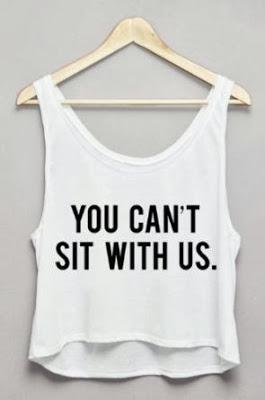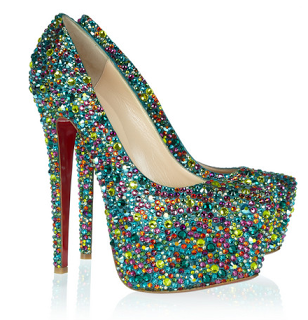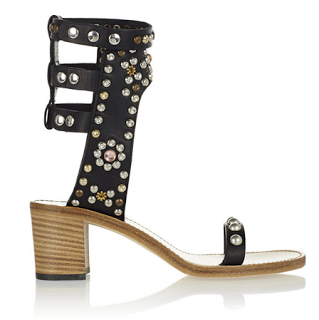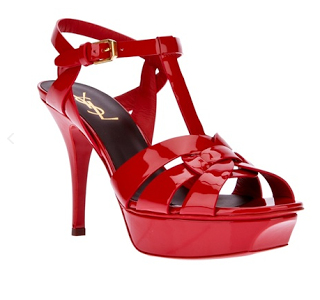 Is the exclusivity of our favorite brands affecting our shopping habits more than we know?
Is the exclusivity of our favorite brands affecting our shopping habits more than we know?Something caught my eye the other day while I was online window shopping (yes that's a real thing). Behold, the $7,000 shoe..before you freak out (particularly my husband who is reading this having a heart attack most likely) its two shoes, one for each foot, so its quite the steal.
 While I won’t be purchasing these shoes any time soon (maybe wait for the sale) the discovery of these sparkly friends made me ponder…what would entice someone to buy these? I already know the answer, SPARKLE…duh! But what if there was another purchasing rationalization?
While I won’t be purchasing these shoes any time soon (maybe wait for the sale) the discovery of these sparkly friends made me ponder…what would entice someone to buy these? I already know the answer, SPARKLE…duh! But what if there was another purchasing rationalization? Since I am not in the habit of purchasing $7,000 pumps I can only guess that besides wanting to be noticeable from space one may purchase these shoes to "stand out" in more way than one. If these are not an exclusive pair of shoes than I am not sure what is.
I didn't even realize this was happening until it was “too late”, but I had a wish list of items this past summer that was filled with the “IT” items every other blogger and every other woman on this planet wanted, and that really bothered me. I couldn't pin point what it was about the shoes, handbags, jewelry and clothing I had on my wish list, but the common denominator was that they all held the title of being EXCLUSIVE.
Exclusive for the season, for the designer, for the online shop that claimed “Limited quantities available”, exclusive by right of a high price point. These items were exclusive yet I couldn't read my newsfeed on Bloglovin with encountering at least 5 fashion bloggers with the same shoes, and when Fashion Week arrived I had spotted dozens of ladies with the same handbag within the first day, what’s so exclusive about something thousands of other people also have in their closet?
Have I been sucked into a clever marketing ploy to heighten the exclusivity of products in an attempt to create frenzy around luxury goods, ultimately increasing the sales of luxury brands?
More importantly have we become obsessed with brand and product exclusivity?
Apparently there is SOMETHING going on here, in fact consumers in this new Millennium are said to have “luxury fever”. We as consumers are intrigued and allured by this word, “Luxury”; it denotes desire, scarcity and exclusiveness. Brands strive to achieve this perceived exclusivity all the while boosting their sales. Sounds impossible to do, because obviously putting more of your product out into the market will dilute the scarcity of it, right? Wrong, they know what they are doing, it’s calculated and it works. Everyone and their mother wore the Carol studded Isabel Marant leather sandal during the summer of 2013 and all it did was add to the frenzy, while I was sick of seeing them everywhere I also secretly wanted a pair. Sigh. You may be asking yourself, what exactly makes a brand exclusive? Well, stuff like the emotional connection you have with a product or service, the je ne sais quoi factor, the quality of standing the test of time, the idea that something is "cool". Also, today we can add to that, social media and consumer buy in. Actually, social media is the most effective tool a company can buy into these days, because the consumers back it, and its free advertising. Which brings me back to the damn studded sandal, Marant can thank fashion bloggers for the obsession that grew over that shoe this summer. You're welcome.
You may be asking yourself, what exactly makes a brand exclusive? Well, stuff like the emotional connection you have with a product or service, the je ne sais quoi factor, the quality of standing the test of time, the idea that something is "cool". Also, today we can add to that, social media and consumer buy in. Actually, social media is the most effective tool a company can buy into these days, because the consumers back it, and its free advertising. Which brings me back to the damn studded sandal, Marant can thank fashion bloggers for the obsession that grew over that shoe this summer. You're welcome.
Speaking of Isabel Marant, were you wondering why exactly she decided to do the H&M + Marant diffusion line? She mentioned recently that she did it because she knew H&M would eventually copy her designs and she figure she may as well be a part of it, and reap the profits herself. She wanted to hold the exclusivity even on high street, main stream consumer goods. Good for her.
A few weeks ago I had the pleasure of listening to a brilliant Intellectual Property lawyer speak about the Christian Louboutin red sole Trademark case. Without going into too much legal mumbo jumbo (I mean I could if you want me to…just say the word and I will talk about this shit for days) I wanted to share with you why Louboutin ended up taking YSL to court over one pair of shoes, I’ll give you a hint, it was a fight for exclusivity.Once upon a time in 1992, Mr. Louboutin incorporated the red sole as a core component of his brand. Later in 2008 he was granted exclusive rights in the US to have a red lacquered sole on any type of “women’s high heel”. Just so you know, this was a pretty groundbreaking decision, because colors are not typically covered under trademark protection. Christian Louboutin as a luxury brand had really infiltrated our fashion culture, and the red sole was the hallmark of that influence. As a result Louboutin was granted legal protection to that EXCLUSIVE red sole.
In 2011 YSL introduced the Tribute sandal in a bright red patent leather, along with, gasp, a with matching red sole.

While Louboutin lost (but won on appeal in the end), a very interesting piece of information came out of that trial. The trail judge stated "The law applauds innovators. It rewards the trend setters, the market makers. "
The point here is that you get a monopoly because you tried something different.
Just so you know, on appeal Louboutin enlisted the help of the Tiffany and Burberry brands who for obvious reasons also had an interest in the color/pattern exclusivity debate. The Tiffany blue box and the check Burberry pattern are all symbols of exclusive designs that people all over the world covet and show off whenever they get the chance. You can’t mistake the robin’s egg blue box for anything but Tiffany, just like you can’t mistake a shiny red sole for anything other than a Christian Louboutin design. So now that I've shared my take on the matter, I want to know if exclusivity of a particular brand or fashion item has ever crossed your mind and persuaded you to make a purchase?

